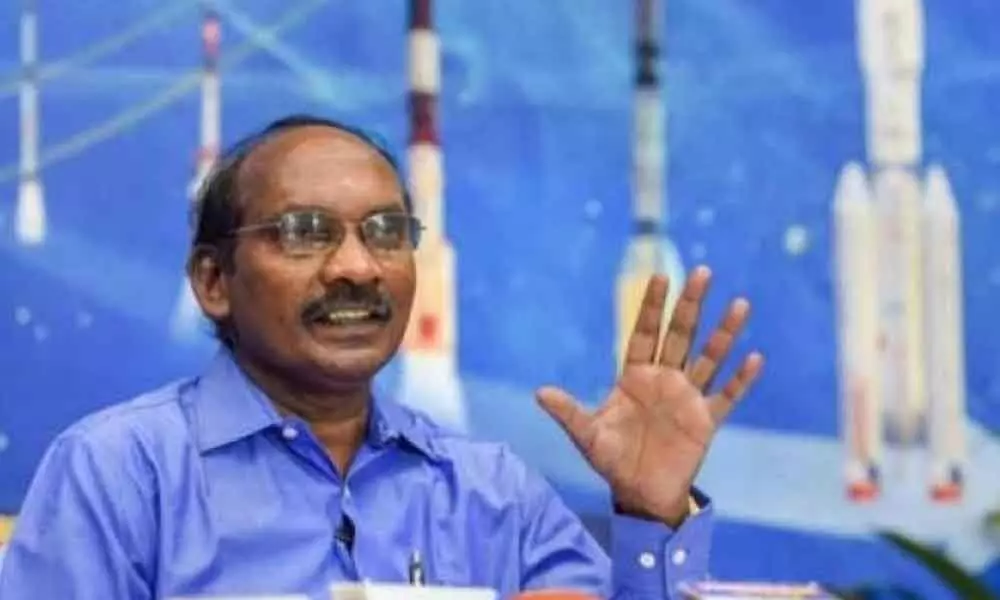Indian space sector locked down during the first half of 2020

Indian space sector locked down during the first half of 2020
What would have been an insipid first half of the calendar year 2020 for the Indian space agency turned a bit interesting towards the end, with the government announcing its decision to open up the sector to private participation.
Chennai: What would have been an insipid first half of the calendar year 2020 for the Indian space agency turned a bit interesting towards the end, with the government announcing its decision to open up the sector to private participation.
At the start of 2020, Indian Space Research Organisation (ISRO) Chairman and Secretary Department of Space K. Sivan said that the space agency was planning to have 25 launches -- including Aditya-L1 satellite, Geo Imaging Satellite (GISAT-1), realisation of Small Satellite Launch Vehicle (SSLV) or small rocket (carrying capacity 500 kg), navigation satellite with indigenous atomic clocks and Indian Data Relay Satellite System (IDRSS), and GSAT-20 satellite with electric propulsion.
Sivan also said India will embark on its third moon mission 'Chandrayaan-3' and attempt to land a lander on the lunar surface sometime in 2020-21.
All was going well for ISRO after the crashlanding of India's moon lander Vikram on the lunar surface in 2019. The year began well ISRO with the launch of the 3,357 kg communication satellite GSAT-30 by the European space agency Arianespace rocket Ariane 5 on January 17.
The ISRO also showcased its robot/half-humanoid -- Vyommitra - which was part of its human space mission programme 'Gaganyaan'.
The first setback of the year for ISRO came on March 4, when it had to call off the launch of GISAT-1, a day before its actual launch, owing to technical reasons.
The ISRO did not share any detail about the technical reasons, or the glitch, and its rectification since then. It is also not known when the satellite with a very good camera would be launched.
Then came the Covid-19 lockdown within and outside India that had its cascading impact on ISRO's core plans like the realisation of SSLV, launch of GISAT-1, delay in the first test-flight of the rocket as part of Gaganyaan mission.
"During the lockdown, industries that were supplying components were not working. Our own officials were not able to attend office. Further travel to Sriharikota in Andhra Pradesh for satellite launch by the officials were not possible due to the lockdown," Sivan told IANS.











